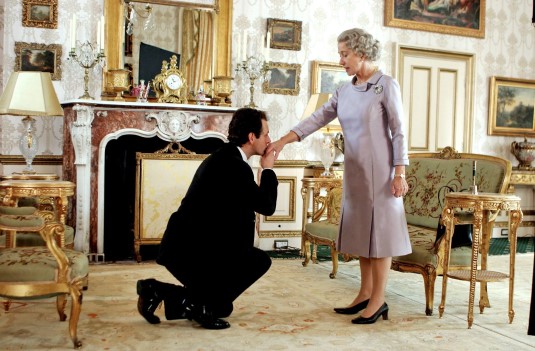
The thesis will be discussed in more depth in the book (spoiler, you can't consider the history of the Tories separately from the state it, more than any other party, has shaped) but there was one aside from Anderson I thought was worth elaborating on. The peculiar class structure of 19th century British capitalism also had specific consequences for the development of the working class. Instead of conceiving its history in terms of a dynamic and antagonistic relationship to capital, Anderson argues that the dominance of the aristocratic/mercantile interest means we should conceptualise British workers in terms of a sector within a semi-feudal set of relations. That is instead of being excluded from the system and therefore having to organise a movement capable of prosecuting its independent class interests against the bourgeoisie, as per most of Western Europe, the proletarian interest was corporatised. In practice, this meant the British labour movement at its most radical contested overt manifestations of feudal remnants but always adopted an ameliorative standpoint vis a vis capital. Hence why Labour has never been an explicitly socialist party, took a long time to achieve its (formal) political independence, and revolutionary politics and Marxism (of whatever flavour) has always been a minority interest.
Knowing one's place lends itself easily to the duality we see in Labourism to this day, particularly on the Labour right. I am thinking about how, historically, Labourist politics look for minor improvements here and there while setting itself up as an aristocracy that claims special insight into as well as being custodians of the will of "our people". And hand in hand with this goes an enthusiastic tailing of the Tories on foreign policy matters. From the development of the bomb, to colonialist counter-insurgency, to the invasion of Iraq and repeat interventions in the Middle East Labourism has historically surrendered the terms and reference points to bourgeois real politik, conventionally defined. To put it more bluntly, the power interest of capital comes first regardless of which party is in office - hence why Jeremy Corbyn was so objectionable, because he broke with a bipartisanship coded into the supine loyalties of the Labour right.
The second aspect is how this corporate consciousness informs (older) working class identity and opinion formation. One aspect some folks get wrong when it comes to Tory leaders is the belief being posh is a turn off. It's not, character is a more complex issue. The anti-aristocratic character Anderson identifies in working class politics is less an antipathy to aristocratic Tories. After all, Boris Johnson, Jacob Rees-Mogg and Dave never pretended to be anything else. Rather, it becomes a weapon against our own side. What many can't abide are those who either come from a privileged background or are from proletarian stock who, while ostensibly on their side, are perceived to lord it over them politically (see the second referendum), claim to know what's best for them, or affect a transformation that sticks in the craw as phony and/or distant (the infamous Emily Thornberry incident). And so actual aristos can ride to power on the back of outrage against imagined aristos - a directed anger that affirms one's subordinate position via kicking against those who refuse to conform to it.
This isn't a catch-all theory by any means, but it helpfully highlights the deference that runs deep in popular consciousness, its historical roots, and enables a number of insights into the peculiarities of British Labourism.
6 comments:
Interesting points. In the context of the selection of a new Labour leader this suggests radical policies or place of birth are less likely to appeal to voters than a sense of being a Leader.
I agree Simon. Deference in some working class communities is alive and well. It is within the Labour Party's capability to develop a strategy and an environment which recognises this reality without returning back to to the Blair years. The centre and the left can and should work together to win. I think most folks in the party are really sick of the moaners and those that put their own inflated egos first. The notion of collective responsibility and loyalty seems beyond their grasp. From members I have spoken to they want these MPs to just shut up or leave. The future is within our grasp lets not let anyone in the party take that away from us. Lets all work together to make sure this does not happen. Scorn on those in our party who pull us down.
typical, leftwing crap!!!!
Deluded beyond parody.....#ComedyCentral
Look forward to reading your book and further posts Phil always interesting analysis - whether I always agree with it always or not !!!!!!!!!!!!!!!!!!!
Elected Members should understand that you 'don't wash your dirty laundry in public' not if you are representing a party. Basic really. Hope the Labour Party, going forward, manages to sort that out.
«Elected Members should understand that you 'don't wash your dirty laundry in public' not if you are representing a party.»
But New Labour MPs are representing a party, "New Labour" (aka Change UK, LibDems, Likud), and have every right to oppose parties representing interests different from those of their "Middle England" constituencies, like Labour. Tony Blair himself said that he would prefer for Labour to lose elections if Labour entrysts in New Labour made it turn back from being New Labour.
Post a Comment